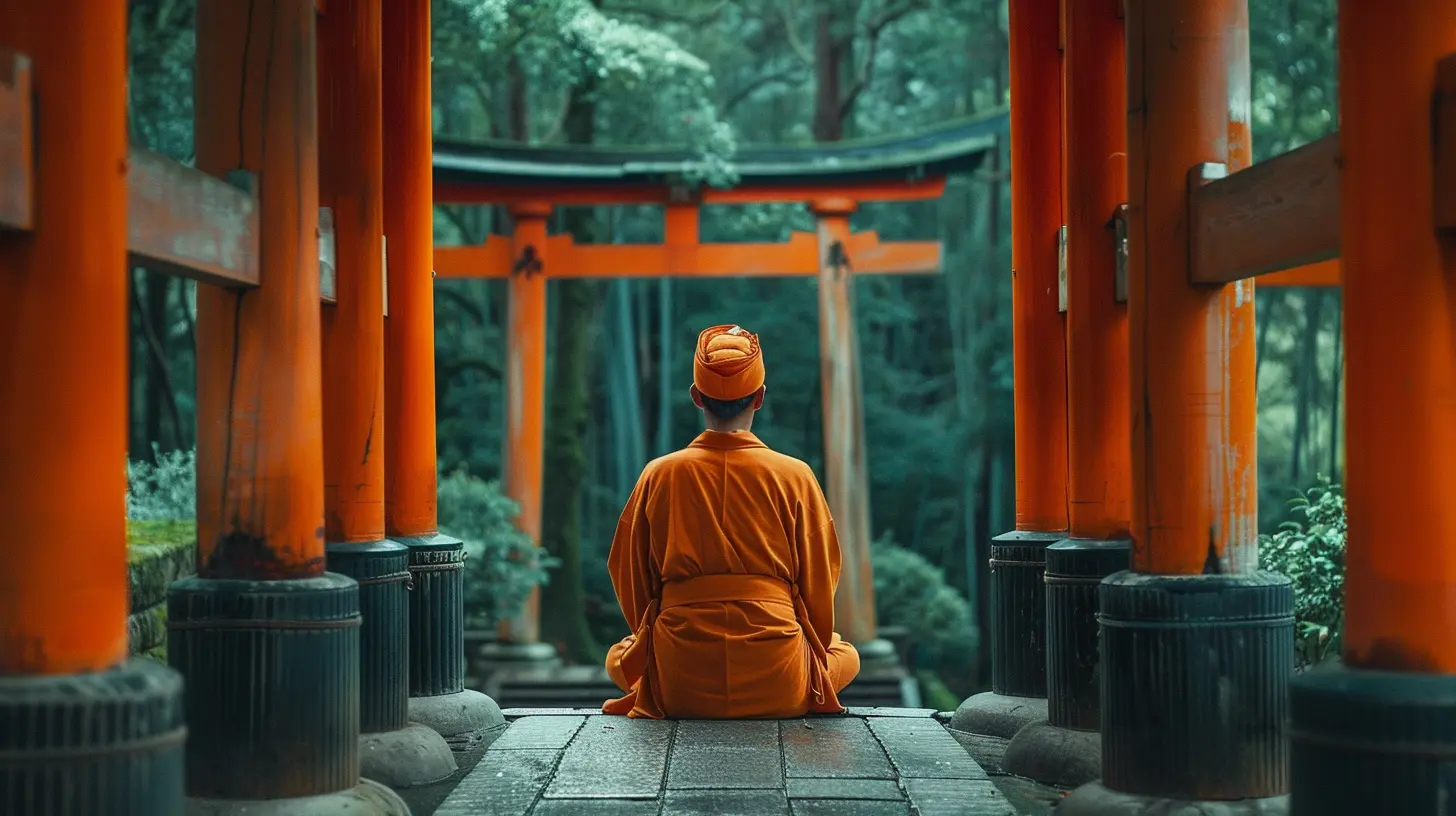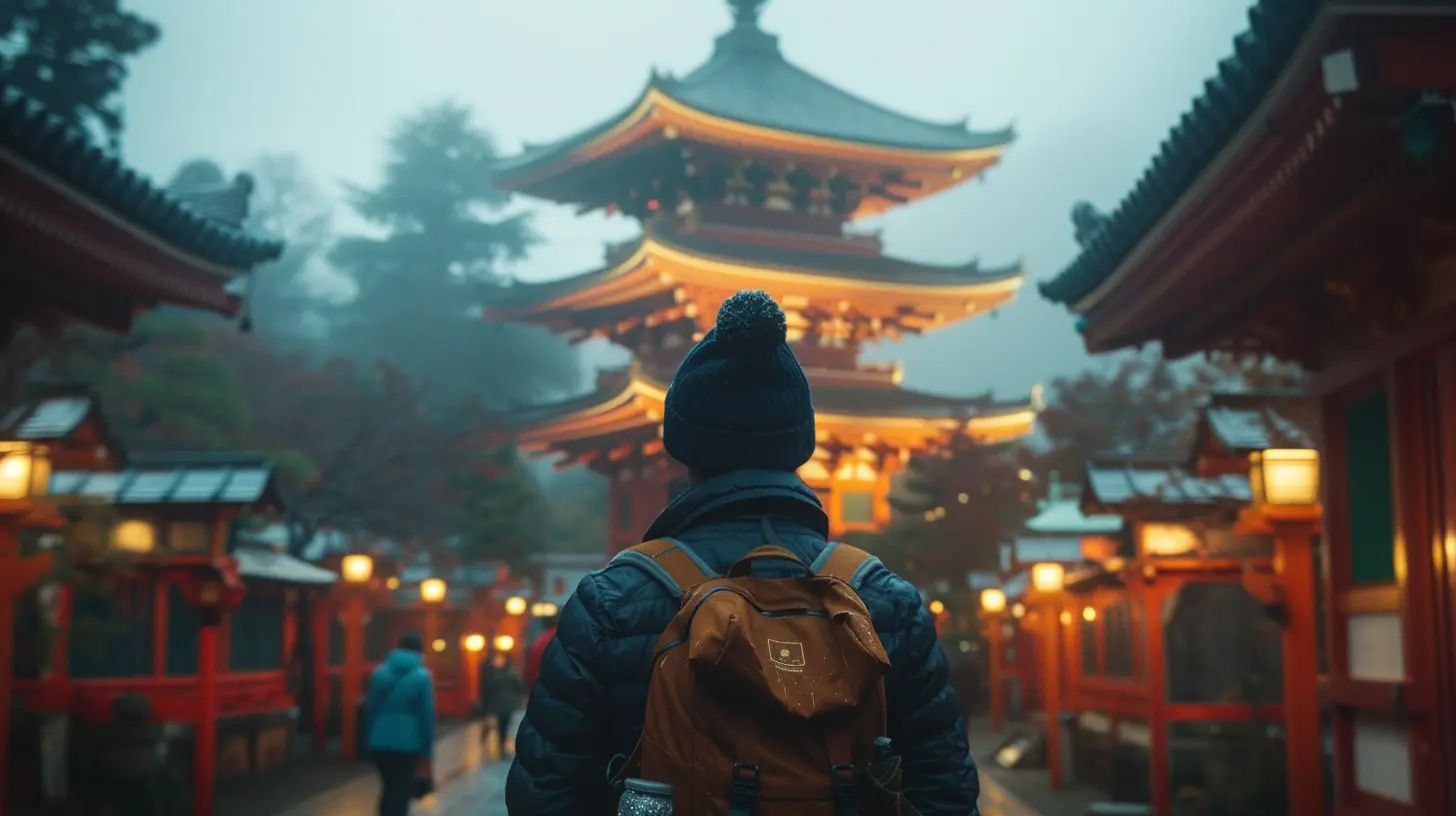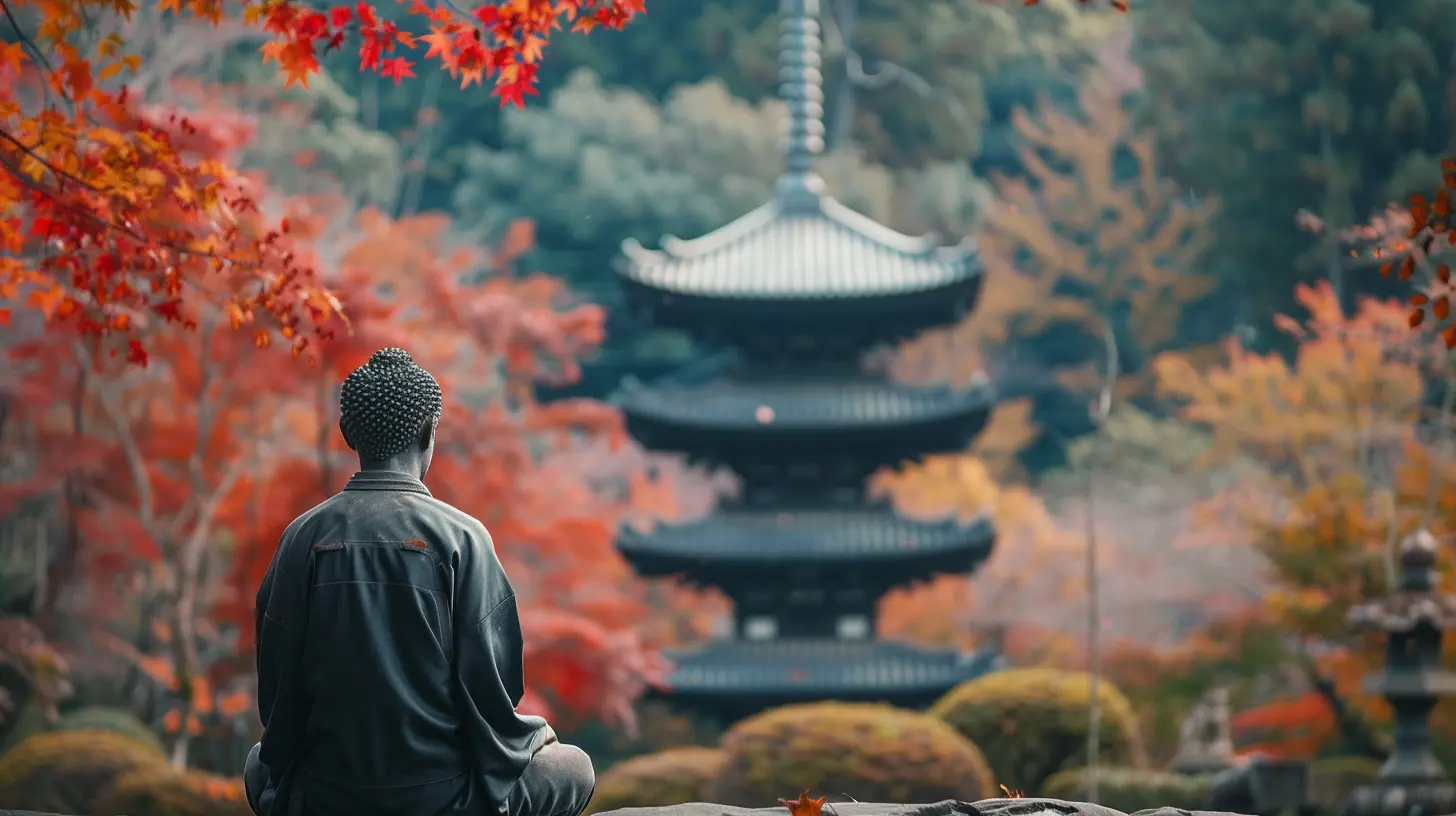The Role of Silence in Japanese Culture: What to Know Before Your Trip
12 October 2025
Japan is a country that fascinates travelers with its blend of ancient traditions and cutting-edge modernity. From the neon-lit streets of Tokyo to the serene temples of Kyoto, every aspect of Japanese culture feels meticulously crafted. But one thing that often surprises visitors is the unique role of silence in Japanese society.
In a world where noise and constant chatter dominate, Japan offers a refreshing contrast. Silence is not just an absence of sound; it’s a language, a form of respect, and a deep cultural value. So, before you embark on your journey, let’s dive into why silence matters in Japan—and how understanding it can enhance your travel experience. 
🎎 Silence as a Form of Respect
In Japan, silence is golden—literally. While in many Western cultures silence can feel awkward or uncomfortable, in Japan, it is a powerful tool for showing respect, patience, and thoughtfulness.For instance, when someone is speaking, especially an elder or a superior, it’s considered polite to listen quietly rather than interrupting with "uh-huh" or "yeah" as we often do elsewhere. This silence isn’t passive but rather an active form of engagement, a way of showing that you are fully present in the conversation.
🤝 Business and Professional Settings
If you're planning to do business in Japan, understanding the role of silence will give you an edge. Unlike in Western meetings, where filling the air with words is often seen as a sign of confidence, Japanese business culture encourages pauses. These moments allow for reflection and careful thinking before responding.So, if you’re negotiating a deal or simply introducing yourself, don’t feel pressured to fill every silence. Sometimes, the most powerful thing you can say is nothing at all. 
🚆 Silence in Public Spaces
If you’ve ever taken public transport in Japan, one of the first things you’ll notice is how quiet it is. Whether you’re on the Shinkansen (bullet train), a public bus, or the subway in Tokyo, you’ll find that people rarely talk loudly, if at all.📵 The Unspoken Rule on Public Transport
Japanese commuters respect each other’s personal space—not just physically but also sonically. Talking on the phone while on public transport is considered rude. Instead, passengers quietly read, scroll through their phones, or even nap.So, if you're traveling on a train or bus, it’s best to keep conversations at a whisper or simply enjoy the peaceful ride. 
🏯 Silence in Temples and Shrines
Visiting a temple or Shinto shrine in Japan is a magical experience. The towering gates, the incense-filled air, and the ancient architecture create a feeling of timeless tranquility. But one of the most striking aspects of these sacred places is the quietness.🙏 The Power of Silent Worship
Unlike in some cultures where prayer involves vocal chanting or singing, many Japanese religious practices emphasize silence. Whether it's leaving an offering, making a wish, or participating in a tea ceremony, there’s a deeply ingrained belief that silence enhances spiritual connection.When you visit these places, embracing the silence allows you to fully absorb the atmosphere and show respect for local traditions. 
🍣 Silence at the Dining Table
Food is a huge part of Japanese culture, and eating in Japan comes with its own unspoken (literally!) etiquette.🍜 The Meaning of Silence While Eating
In Japan, a meal is meant to be savored. While in Western cultures, mealtime often involves lively conversations, in Japan, quiet dining is common, especially in high-end restaurants and traditional ryotei (Japanese-style dining establishments).This isn’t to say that speaking at the table is forbidden. However, the focus is on appreciating the flavors, textures, and craftsmanship of the dish rather than casual chit-chat. In many fine-dining sushi restaurants, for example, customers and chefs communicate mostly through nods and eye contact rather than words.
But Wait… What About Slurping?
Here’s where it gets interesting! While silence is valued in many aspects of Japanese dining, slurping noodles is actually encouraged. It’s a sign that you're enjoying the meal, and it even enhances the flavor of dishes like ramen and soba. So, if you’re sipping a bowl of udon, go ahead and slurp away!🛏️ Silence in Ryokan and Traditional Inns
If you're staying in a ryokan (traditional Japanese inn), you’ll notice that these places are designed with peace and quiet in mind. The sliding fusuma doors, the tatami floors, and the absence of loud televisions all contribute to an atmosphere of relaxation.🏡 The Art of Quiet Hospitality
Staff members in ryokans often speak in soft tones, and guests are expected to do the same. Walking gently on tatami, avoiding loud conversations, and even whispering in hallways are all considered signs of good manners.This understated elegance extends to onsen (hot spring baths) as well. When soaking in a communal bath, a peaceful atmosphere is key—so leave the loud chatter behind and simply enjoy the soothing waters.
🏯 Silence in Daily Interactions
At first, you might think that Japanese people are being distant or reserved because they don’t speak as much as in some other cultures. But in reality, this quietness is simply a different way of communicating.🤗 The Importance of Unspoken Communication
Nonverbal cues—such as a bow, a pause, or even a simple “mmm” sound—can carry more meaning than words. A slight nod can be a thank-you; a slow blink can mean understanding.So, while you’re traveling, try to be more aware of body language and social cues. Sometimes, the best way to communicate in Japan isn’t through words but through actions.
🌸 Embracing the Beauty of Silence on Your Trip
Understanding the role of silence in Japanese culture can transform your travel experience. Instead of feeling uncomfortable in quiet moments, embrace them. Whether you’re sitting in a tranquil garden, walking through a peaceful temple, or simply enjoying a meal, these silent moments allow you to connect deeply with your surroundings.So, before your trip, take a deep breath. Get comfortable with silence. Who knows? You might just find that Japan teaches you to listen—not just to others, but to yourself.
all images in this post were generated using AI tools
Category:
Cultural EtiquetteAuthor:

Reed McFadden
Discussion
rate this article
1 comments
Damon Wright
Silence in Japanese culture is a profound aspect that reflects respect, mindfulness, and deep connection to nature. Understanding this nuance enhances the travel experience, allowing visitors to appreciate serene moments in traditional settings. Embracing silence fosters a deeper cultural appreciation and enriches interactions with locals, creating memorable, respectful exchanges.
October 17, 2025 at 3:10 AM

Reed McFadden
Thank you for highlighting the importance of silence in Japanese culture! Embracing this aspect truly enhances the travel experience and fosters meaningful connections with both the culture and its people.


